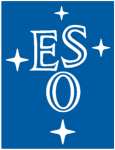This job at ESO - European Southern Observatory is not available
We're sorry, the job you are looking for at ESO - European Southern Observatory on Space-Careers has expired.
We still have many live jobs. Click below for similar jobs in:
- Germany
- Astronomy and astrophysics
- Civil Agencies/International Organizations
- On-site
- Remote Sensing, Optics and GIS
- Space Research and Development
or go to our job search page.
Similar jobs selected for you
-
Austrian Academy of SciencesGraz, AustriaPosted 32 days ago Deadline 30 April









